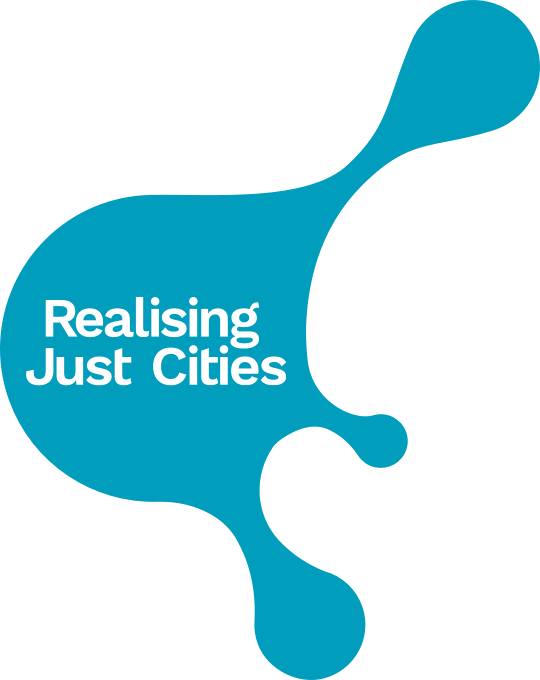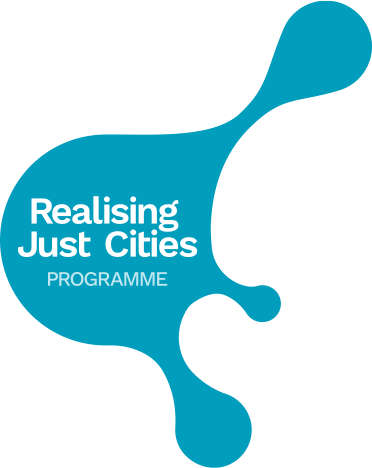"There's no co-production panacea"
To exemplify co-productive design principles means challenging the idea of an ‘end-user’ who receives a final report. It means rethinking what impact looks like and how it can be achieved. Our commitment is to engage decision-makers in a collaborative learning journey through informal spaces for exchange and international networking. Trans-local learning is an important element in opening up spaces for learning and dissemination, often reserved for academics, to urban decision-makers. Trans-localism is more than just cities learning from each other across national boundaries. It points to the need for meaningful interactions between networked individuals and groups of similarly thinking people beyond the local. What is at stake is a sense of belonging through shared perspectives and concerns that transcend local boundaries.
In this blog for our Trans-local Learning mini-series, guests David Rogerson and Nick Fairclough from the Greater Manchester Combined Authority reflect on their experience at the Mistra Urban Futures Annual Conference in Cape Town.
Blog by David Rogerson and Nick Fairclough
Greater Manchester’s model of public service delivery sets out the city region’s ambition for a new relationship between public services and citizens, communities and businesses that enables shared decision making, democratic accountability and voice, genuine co-production and joint delivery of services. As we look to put this principle of ‘doing with; not to’ into practice, it has become clear that this is a journey we can and should ‘do with’ other leading municipalities around the world.
As we look to put this principle of ‘doing with; not to’ into practice, it has become clear that this is a journey we can and should ‘do with’ other leading municipalities around the world.
For this reason, it was a pleasure to be invited by colleagues from the Urban Institute at the University of Sheffield to join them at the Mistra Urban Futures Annual Conference – ‘Realising Just Cities: Comparative Co-Production’ – in Cape Town, South Africa. The conference afforded us an opportunity to share and exchange experiences of involving citizens in the decision-making process with attendees from other cities around the world and consider what best practice in this field looks like.
This exchange of knowledge and experience began in earnest shortly after our arrival, with a joint session between the Greater Manchester and Gothenburg platforms around co-production, and how it might be realised locally. After introductory presentations, it soon became clear that both localities aspire similarly to create a new relationship between citizens and public services and that - although our two areas exist in significantly different contexts - our experiences of co-production share many common themes.
Individual conference sessions also demonstrated the differences – and significant similarities – between cities’ experiences. The transport workshop offered examples of planning in different urban environments and underscored the importance of public involvement in schemes, regardless of climate or continent.
Site tours, an important part of the conference programme, provided us with an insight into some of the unique issues facing Cape Town as it addresses its past. A visit to the Philippi Horticultural Area offered a chance to better understand the issues with contested land that the municipality faces, whilst contested histories was a prominent feature of the walking tour of District Six. Both Philippi and District Six offer a glimpse issues that can arise in urban areas when decisions are not made inclusively.
We were also invited by the City of Cape Town to attend a lunchtime session with our fellow representatives from cities attending the conference, to discuss approaches to making our places inclusive, safe, resilient and sustainable through the Sustainable Development Goals. This was a great chance to understand different approaches to these important goals and see some of the results: the Buenos Aires contingent’s recycling video games were particularly inspiring!
The opportunity to attend the conference has given us a wealth of things to consider and feed back in to our own work. Primary amongst these is that there are no easy answers; no co-productive panacea. The conference demonstrated that co-production can prove challenging for bodies of all shapes, sizes and locations. It also opened our eyes to the value of being part of a collaborative network where lessons and expertise can be exchanged on a global scale, bringing new perspectives on our work in Greater Manchester.
Read the second blog of the series by David Rogerson and Jacob Botham, How to Co-produce the City in No Easy Steps.
It opened our eyes to the value of being part of a collaborative network where lessons and expertise can be exchanged on a global scale, bringing new perspectives on our work in Greater Manchester.




